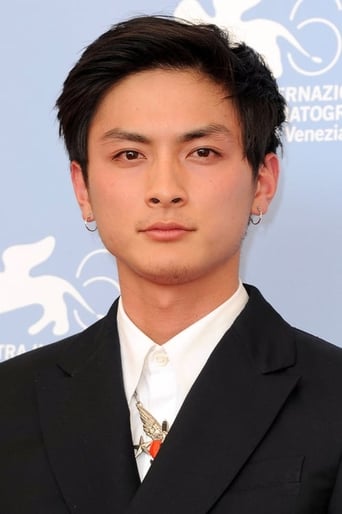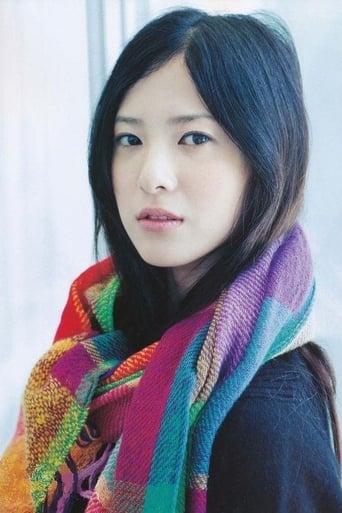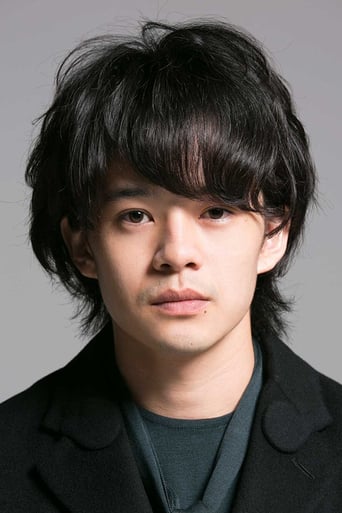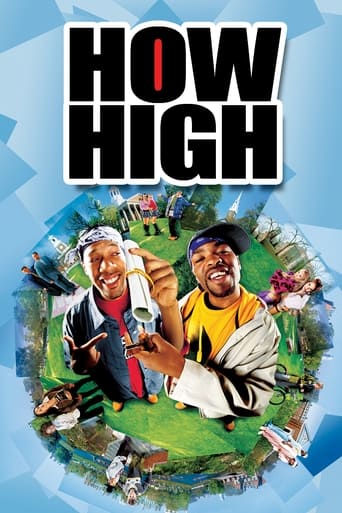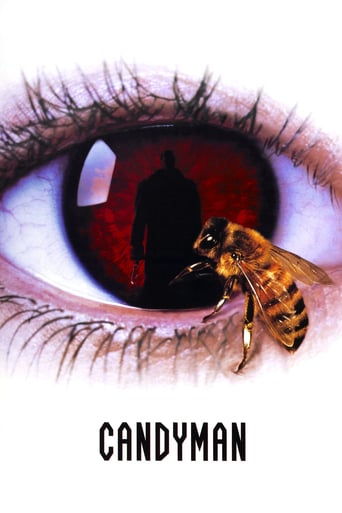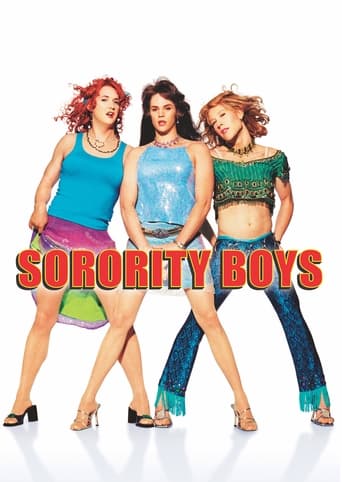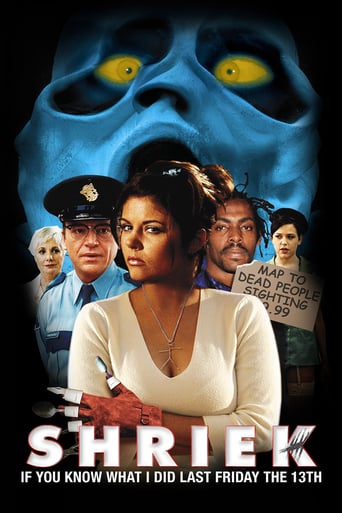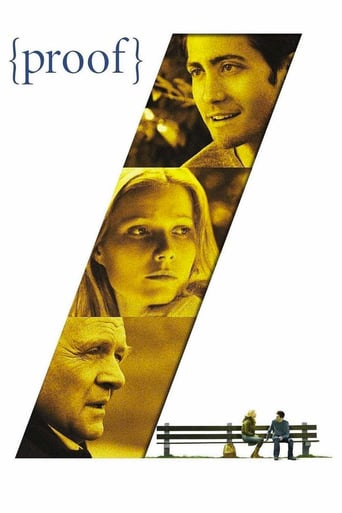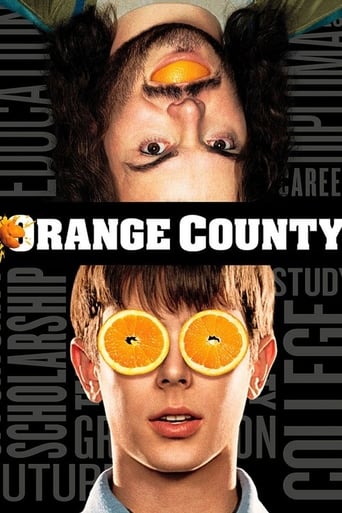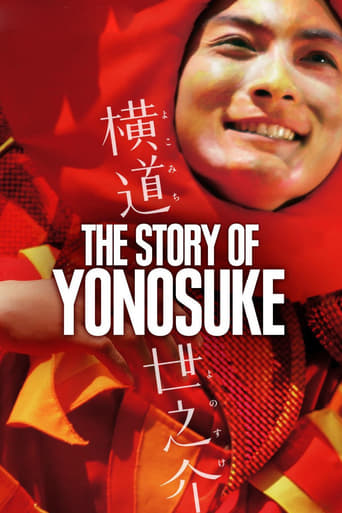
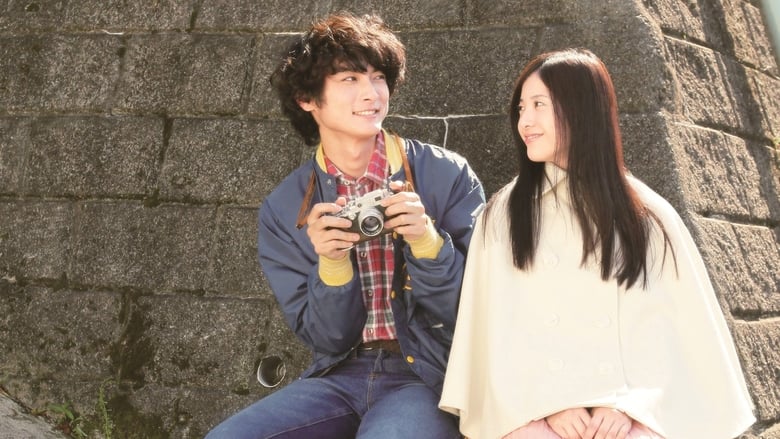
A Story of Yonosuke (2013)
The year is 1987 and Japan is just reaching the peak of its economic success. Eighteen-year old Yonosuke Yokomichi arrives in Tokyo from Nagasaki. Ordinary in every way possible, he lives in a suburb far from the excitement of the big city and commutes to a university in the center of Tokyo.
Watch Trailer
Cast


Similar titles

Reviews
Waste of time
one of my absolute favorites!
It's not great by any means, but it's a pretty good movie that didn't leave me filled with regret for investing time in it.
A movie that not only functions as a solid scarefest but a razor-sharp satire.
A Story of Yonosuke is a quirky beautiful film. Whimsical in nature, it is centred around the character of Yonosuke, a charming, lovable character. Set in the 1980s, it follows his life, friendships, and love. Not quite drama, but not an obvious comedy, it's a chilled story of a quirky individual, and their life. Title role is played exceptionally well but the main actor, however, it does run too long. It would have been a seriously good film if it had been edited down by 20 minutes. Worth a look in any case, and one of the best Japanese films of 2013.
You know that weird bloke you went to uni with? You know the one? It was me. Well, this is what Yoshida Shuichi clearly had in mind when he wrote the novel 'Yokomichi Yonosuke'. Seemingly semi-autobiographical, it tells the story of Yonosuke, a hilariously-named student from Nagasaki, arriving in Tokyo in the late Eighties to start university. A seeming odd-ball, played by a different-haired Kengo Kora, in his own unique way, Yonosuke touches (not in a bad way) everyone that he meets, with the various young students he comes across (not in a bad way) shown to be later reminiscing about their friend from university a decade and a half later.Telling the story on one's life can take a long time, and 'The Story of Yonosuke' is a long film and seems to start slowly. But unfolding like chapters in a book, switching between the past and the present, the film is broken up enough into digestible chunks that mean it doesn't drag or bore, something that would have harmed and otherwise good film. But luckily, it doesn't, and 'The Story of Yonosuke' is a strong piece about nostalgia.Watched a decade after graduating from university, one can definitely relate to the characters looking back at their old friend - one probably not seen for many years - with Yonosuke a recognisable individual which one would meet at a seat of learning, but would be left on with memories of years later. What did happen to that weird bloke? He's writing this.
A young man, Yonosuke Yokomichi, leaves Nagaski for college in Tokyo, makes friends and has some low-level adventures. Over 20 years later, we see the impact his short life had on the people he encountered.Shuichi Okita directs this tale with some flair. He has a penchant for the hard geometric framing that Japanese interiors lend themselves to, placing Yonosuke within a square doorway seen through a round opening in an adjoining wall. There are some joyous reaction shots, evidenced especially by a maid who watches tenderly, if slightly aghast, Yonosuke's courting of dippy rich girl Shoko. There is comedy in the cut, such as when Yonosuke is invited to "a pool" and turns up in trunks and snorkel to a formal dress poolside party. Kengo Kora plays the gawky but affectionate Yonosuke, never overdoing the charm or melodrama. Yuriko Yoshitaka manages to take a role that could easily become annoying and infuse it with tenderness and just the right amount of quirk. The comic timing in the dialogue is well-worked at times, such as an awkward acceptance then refusal of leftovers from a new neighbour. Yonosuke does samba, helps out his cameraman neighbour, backs up a gay friend when he comes out... The film consists of these episodic moments, low-key everyday life, vignettes loosely strung together that give a flavour of Yonosuke the college student, who from beginning to end is the same awkward if lovable geek.The flaw in Okita's scheme is, unfortunately, a massive one - a lack of self-discipline. The running time of this film is flagrantly self-indulgent. There is a good 90-minute film in here, but Yonosuke just does not do enough, or have enough of a journey, or in any way encapsulate the period setting (the late eighties, which is never invoked in an ironic or satirical sense) to justify such ponderous attention. At 160 minutes the film is 20 minutes longer than 'Mandela: Long Walk to Freedom.' This film could similarly be titled 'Yonosuke: Very Long Meander to, well, Nowhere Really.' There is a lot of dead screen time here that should have ended on the cutting room floor. For example, Yonosuke's neighbour is presumed dead. Yonosuke brings him chocolates. It leads to the neighbour holding a photography exhibition. Yonosuke attends and stares uncomprehendingly at the photos. The audience reaction to this is a shrug and mumbled 'So what?" Some play in the snow goes on and on, part of the romance between Yonosuke and Shoko that seems to be just a series of 'meet cutes.' As funny as some of the comedy is, as pretty as the frames Okita fashions are, the flab this narrative carries completely undercuts all that other good work and makes this film a slog to get through, never mind recommend.It would be interesting to see what a hard-nosed editor with a brief to keep this film under 90 minutes would fashion from the footage. I suspect the answer is a far better film. If I were Okita, I would seek out such an editor as a matter of priority.
I found A Story Of Yonosuke striking, but for entirely the wrong reason. Put simply, ASOY is a case study in culture-specific humour, and is far more interesting to consider in this manner than as a light comedy biopic epic.It was an effort to sit through nearly two and a half hours of this. Not that it was all that dull, but the laughs are mostly silly giggles, and there are often long stretches between laughs where not a lot happens. The narrative is structured as an epic, spanning sixteen years, told from several different viewpoints, with multiple flashbacks which sometimes confuse and irritate. This epic scale is stunningly at odds with the lightly comic examination of the life of one foolish man, and how he affected the lives of those he befriended.The title character is presented like a younger version of Tora-san, a fool who stumbles through life with a sunny view of things, strongly projecting that quality much admired by Japanese, 'genki' (difficult to translate – a combination of lively, positive, optimistic, energetic). The laughter starts when he tells his name. Nearly everyone in the film giggles at the mention of his name. The Japan Film Festival audience was sharply divided on this. Japanese audience members got the joke, but we gaijin (foreigners) sat there po-faced and puzzled, until one of the characters thoughtfully explained that the alliteration of the name was the funny part.Alliteration seems to have a more specific definition in Japanese. That his name is Yokomichi Yonosuke is what cracked up the characters and the Japanese audience. An English equivalent, such as Adam Addison, just doesn't do it for us. Not that Japanese names aren't funny to us. Any name including Fuk or Yuk, or the name Aso, can trigger more than giggles.Perhaps this is the Japanese equivalent of rhyming names in English. Ridiculously contrived rhymes such as Richard Pritchard or Katie Tate are practically guaranteed to amuse. Japanese songs hardly ever rhyme. Indeed, it seems they are constructed to avoid rhyming at all costs. Odd, considering that the language has a much greater potential for rhyming (and punning) than English.So, Japanese dislike rhymes but Westerners find them amusing. Japanese are amused by alliteration, but Westerner only raise an eyebrow at best.We evidently have a clear difference between the humour of Japanese and Westerners. ASOY rests totally on this humour, which is why I found watching the movie a test of endurance more than a comedy. If ever ASOY were given a wider release, I heartily recommend shortening it by at least one hour, and I do not think the story will suffer for it.The Japan Film Festival website classified this year's movies into a number of categories. I am puzzled that they failed to apply the category "Only In Japan" to ASOY.There are a few bright spots. Yonosuke woos a rich girl. He feels very out-of-place in her mansion. There are several scenes where he has awkward dates, which are only semi-explicably always watched over by the family chambermaid. This actress never speaks, but when the camera cuts to her for a reaction, her expressions are simply hilarious. This is a combination of excellent editing and superb comic timing. Pity there wasn't more of this.The ending is very puzzling. There is no explanation, stated or implied, as to why things worked out this way. For such an unnecessarily long journey, which examines Yonosuke's effect on a number of people and his near-relentless cheerfulness in exhausting detail, I expected something better, to not be left hanging. But I suspect that, like the humour, only the Japanese would ever truly get it.


